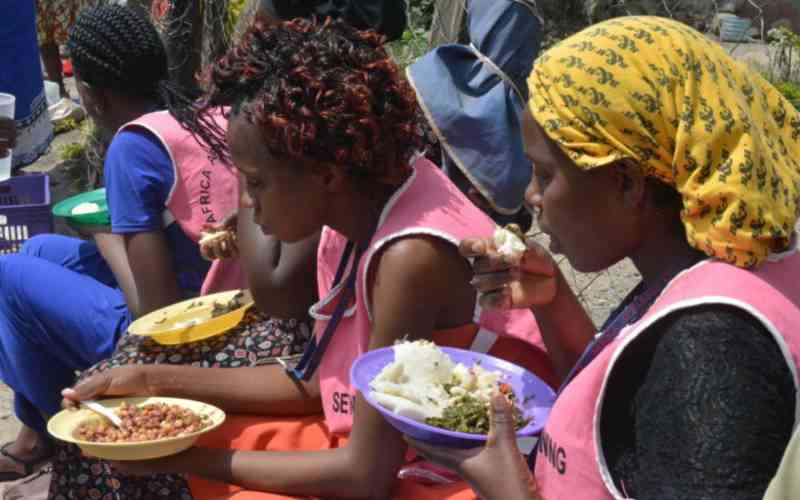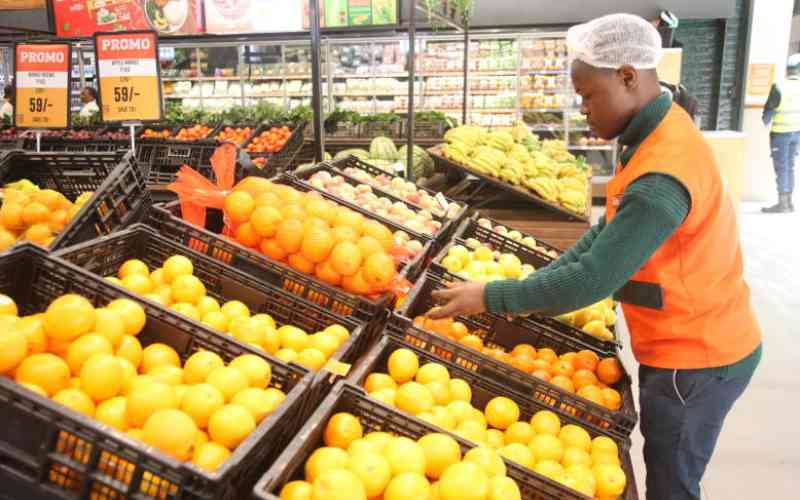×
The Standard e-Paper
Smart Minds Choose Us

Two years ago, Dominic Orina, a teacher, arrived at Kugerwet Primary School and initiated a project to promote vegetable farming and improve nutrition. He explains that he also sought to challenge gendered farming norms.
"I started the project after learning that fruit and vegetable consumption was very low in the area because people were not growing them. The few who did grow some vegetables did so for domestic use, not for sale," Orina explains.







